Rheingold on Father’s Day
From mechanics to carpentry to masonry, there was nothing he couldn’t do well, but Dad wasn’t perfect
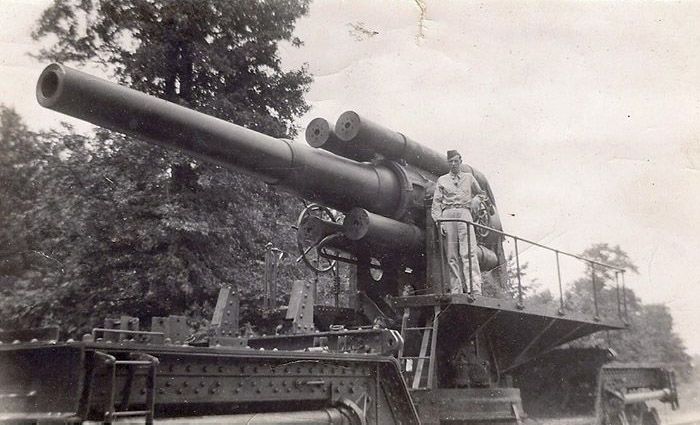
My father is inextricably entwined in my career as a carpenter, and consequently, as an editor at Fine Homebuilding. Dad grew up on a series of rented farms in Warren County, N.J. His own father had been a plumber in Brooklyn who left the trade and the city because a doctor told him he’d die from lead poisoning if he didn’t. Following doctor’s orders, Grandpa crossed the Hudson on a ferry to the terminal in Hoboken and boarded the Erie Lackawanna main line. He got off in Blairstown, almost as far west in Jersey as you can go without being in Pennsylvania. Although Interstate 80 now literally runs through the middle of one of those farms, back then, in the first decade of the 20th century, there wasn’t much in the way of work in that sleepy part of the world—except for farming.
So, Grandpa became a farmer. Somewhere along the line he met my grandmother, whose family ties in northwest Jersey date to the 18th century. Evidently, Grandpa was a lousy farmer who struggled to support his five children. Dad told me they moved a lot when he was growing up because they’d get behind on the rent, and that Grandpa pulled him out of school after 8th grade to help on the farm. It’s probably not entirely fair to blame my grandfather’s lack of farming skills for his family’s poverty—the Great Depression didn’t help. Nonetheless, Dad said he never had enough to eat until he was drafted into the Army in 1941. He served throughout the war, taking a piece of shrapnel in the Battle of the Bulge. That led to his discharge in 1945, and a small VA disability stipend for the rest of his life.
After the war, Dad became a mechanic and was known for building stock-car motors. Sometime at the end of the 1950s, he gave up on stock cars and went to work for the Warren County Road Department. He retired from there 30 years later as the chief mechanic responsible for over one hundred cars, trucks, and tractors. Not bad for an 8th grade graduate.
I once asked him how he learned mechanics. He said he’d always tinkered with engines, but that the Army had really honed his skills. “You figure how to get something running again real fast when somebody’s shooting at you,” he said.
Dad was never a professional carpenter, but he was one of the best amateurs I’ve ever known. Growing up a poor farm kid gave Dad both a wide range of skills and an outstanding work ethic. A story he told me when I was first going to work as a teenager illustrates this. Sometime in the late 1930s—Dad might have been 20—he heard there was road work to be had about 10 miles away. He walked to the site early on an autumn morning, and sure enough, men were working on a road cut. The boss wasn’t there yet, but Dad was cold, so he picked up a shovel and started working alongside the others. When the boss did show up and Dad asked for a job, the boss responded, “Looks like you’ve got one.”
Dad married my mother in 1960. I came along a year later. He borrowed money from his brother, my Uncle Les, to buy a couple of acres of land outside of Belvidere, N.J., and he and my mom started building a house around their newborn son. I literally grew up in a construction site. One of my earliest memories is charging, barefoot and diapered, through the asphalt mastic Dad had down as he was laying floor tile in the kitchen. The kitchen cabinets are one of the few things in that house Dad didn’t build himself. The neighbor across the street, Jim Thomas, was a cabinetmaker and farmer, and Dad rebuilt the motor on a tractor for Jim in exchange for him building the cabinets.
From mechanics to carpentry to masonry, there was nothing he couldn’t do well, but Dad wasn’t perfect. As Iris Dement sings with John Prine, he was one who “drinks his beer like it’s oxygen.” Maybe that sprang from his time in WWII, or maybe that’s just an excuse I make up. In my memories of him, Dad is often holding a can of Rheingold or a bottle of Schmidt’s. The number of bartenders he was on a first name basis with astounds me to this day. His drinking drove my mother away, and they divorced, but through all that, the old man never stopped supporting and encouraging me. It’s complicated, but much of who I am, through both positive and negative lessons, springs directly from him.
Both my parents are gone. In fact, I was sitting in this same building 15 years ago, working for Fine Homebuilding, when I got the call that he had died. I own the house outside of Belvidere now. About six years ago, my wife and I did a major remodel job there in preparation for renting it out. Early on in that process, around Father’s Day in 2011, I was mucking around in the crawlspace underlying the earliest wing of the house when something bounced lightly off my head. A steel beer can, the kind you pop two holes in the top of with a church-key to drink from, had fallen off the mudsill. Although it was covered in 50 years of rust, I could still see that it was a Rheingold can. I’m not a superstitious person, but that felt a lot like a greeting from my father.
I kept the can.
So, back at you, Dad. I miss you, and I appreciate all you taught me, even the things you didn’t mean to teach me.
Photo: Photographer unknown. My father, Charles “Ink” Engel, standing on a railway gun, probably near Portland, Maine, in about 1942.
Fine Homebuilding Recommended Products
Fine Homebuilding receives a commission for items purchased through links on this site, including Amazon Associates and other affiliate advertising programs.
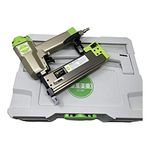
Cadex 18-Gauge Brad Nailer (CB18.50)
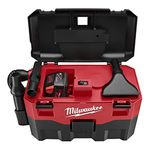
Milwaukee Cordless Shop Vac (0880-20)
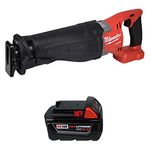
Milwaukee 18v Cordless Reciprocating Saw (2720)
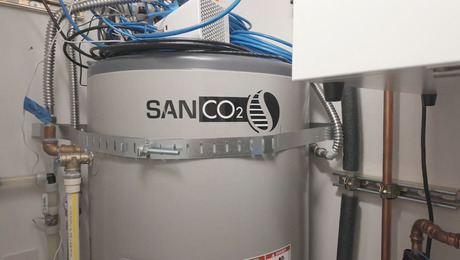
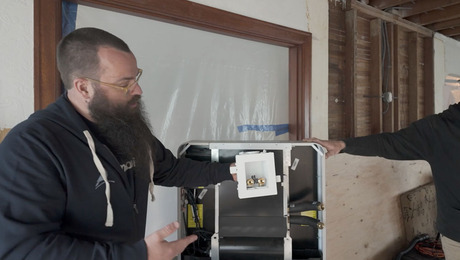
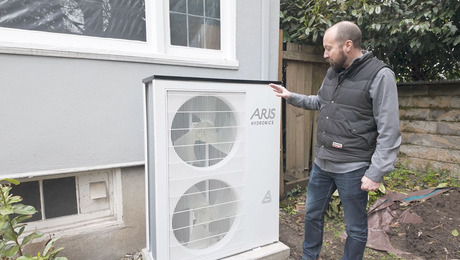
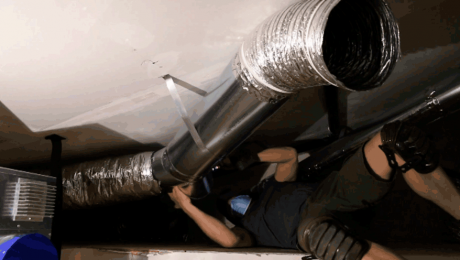
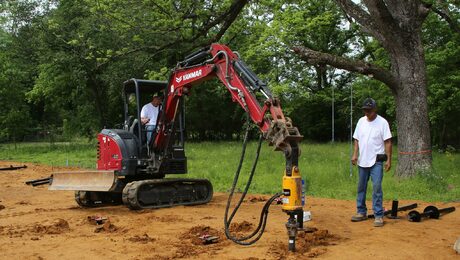

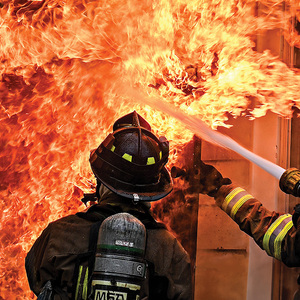
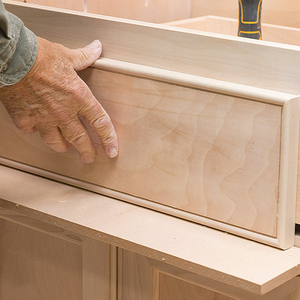
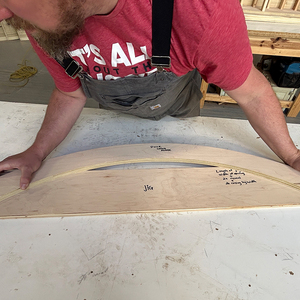
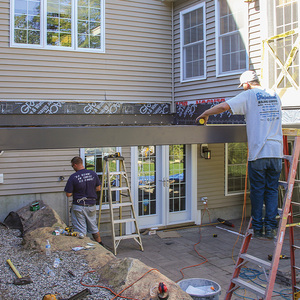




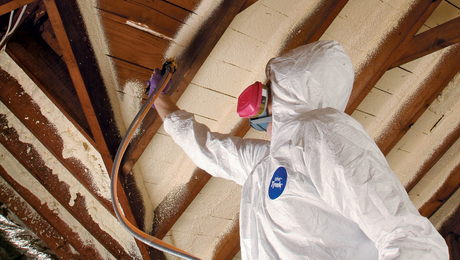
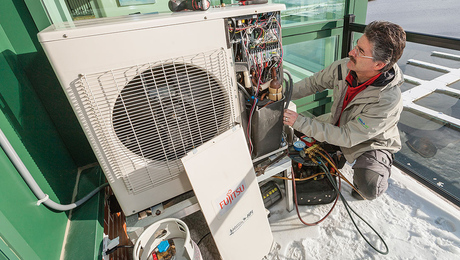
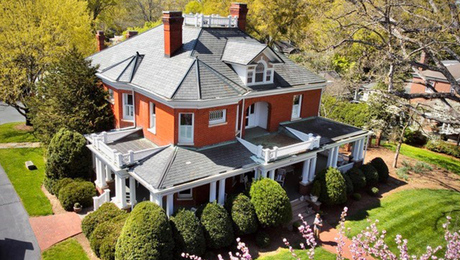










View Comments
Hey Andy. Had a similar experience in that my dad built our house in Saginaw Michigan in 1946, from a Sterling house kit. You could see the Sterling stamp on the rafters in the attic. He was the child of an alcoholic, (we assumed that, since my grandfather died in about 1936, but there were stories and storied behaviors that lived on). My own dad was strict, maybe overly so, but we never doubted his first priority was his family. He continued tweaking the house from 1946 through the early '70's, and we helped despite his occasional temper flare-ups! I became a professional carpenter for 15 years myself, and he was around to see some of my early work. He died at 62 from complications following heart surgery, after having been retired from General Motors for 2 weeks. I now miss him very much and wish that I could have spent more time with him as an adult, without the conflict inherent in a teenage/parent relationship. Later, with help from his life insurance policy, I bought an old house in Ann Arbor and gutted it and rebuilt it piece meal over 7 years. One February 7th, my dad's birthday, I was thinking a lot about him, silently whispering that I missed him and wishing him a happy birthday. I was working in the gutted upstairs bedroom and in cleaning out debris from a stud space I found a penny from 1919, the year of my father's birth. For some reason, even knowing it was a mere coincidence, it effected me very strongly. It felt like something outside of the ordinary and beyond explicable. I don't have a point other than that it's not easy sometimes, being human, and wouldn't it be great if we were wiser as teenagers, and wiser as parents. I still have the penny, and continue to remodel my 1923 Tudor with a couple of my dad's tools. Thanks for sharing your story.
MS